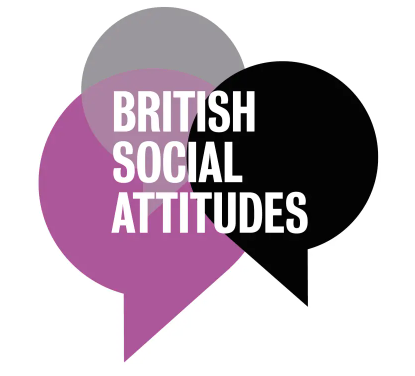Over the last 40 years, Britain has become more liberal in its attitudes towards non-traditional family forms, sexual relationships and abortion, according to the latest British Social Attitudes (BSA) report, published by the National Centre for Social Research (NatCen). However, the same cannot be said of attitudes towards transgender people.
Greater acceptance of non-traditional family forms
- In 1994, around 64% of people agreed that it is all right for a couple to live together without intending to get married; now 81% express this view. The bulk of the increase occurred during the last ten years.
- Now only 24% agree that people who want children should get married, down from 70% in 1989. 45% now disagree that people who want to have children ought to get married, more than double the proportion in 1989 (17%).
- There has been a smaller shift in perceptions of single-parent families, now half agree that one parent can bring up a child just as well as two parents compared to 35% who agreed in 1994.
- Support for non-traditional family forms, such as single parent families and co-habiting families is greater among younger age groups than older age groups. For example, 66% of 18–24-year-olds believe that a single parent can bring up a child just as well as two parents, compared with 29% of those aged 70 and over.
- The increase in support for co-habitation has primarily been the result of generational change.
More liberal attitudes towards sexual relationships – but not infidelity
- In 1983, 17% believed that ‘sexual relations between adults of the same sex’ was ‘not wrong at all’, 67% feel that way today. Over the same period the proportion who said same sex relations are ‘always wrong’ has fallen from 50% to just 9%.
- In 1983, 42% said that pre-marital sex was ‘not wrong at all’, now 78% take that view.
- However, at 57%, the proportion who think that having sex outside marriage is ‘always wrong’ is little different from the 58% who held that view in 1983.
- Those aged 70 and over are less liberal than most other age groups in their attitudes towards same sex relationships (45% say they are not wrong at all) and pre-marital sex (64%).
- 35% of those affiliated with non-Christian faith and 59% of those who identify as Church of England consider sexual relations between two people of the same sex to be not at all wrong, compared with 81% those who do not identify with any religion.
Increased support for abortion – but attitudes still vary depending on the circumstances.
- There is almost universal support, 95% are in favour, for abortions being allowed when the woman’s health is seriously endangered by the pregnancy and 89% are in favour when there is a strong chance of the baby having a serious health condition.
- There is rather less agreement that an abortion should be allowed if the woman decides on her own that she does not want to have a child (76%) or if the couple cannot afford any more children (72%).
- Support for allowing an abortion is lowest – and risen less – for when the woman is not married and does not wish to marry the man. At 68% in 2022, up from 42% in 1983.
- There is little difference in attitudes by age. Attitudes have changed over time among all generations rather than because of generational change.
The proportion adopting a liberal position towards transgender issues has fallen
- The public appears to be divided about a person who is transgender having the right to have the sex recorded on their birth certificate changed if they want. While 3 in 10 think that a person who is transgender should be able to do this, almost 4 in 10 disagree with the remaining near 3 in 10 saying “neither agree nor disagree”
- The proportion thinking someone who is transgender should be allowed to change the sex on their birth certificate has fallen by 23 percentage points – from 53% to 30% – since 2019.
- At the same time, the proportion who characterise themselves as “not at all prejudiced” against people who are transgender has fallen from 82% to 64% since 2019.
Gillian Prior, Deputy Chief Executive at NatCen said: “Changes in moral attitudes undoubtedly constitute the greatest substantive shift in society’s thinking over the past four decades. Attitudes towards families, sexual relations and abortion are often very different now from what they were forty years ago. That said, we still remain somewhat divided on some of these issues, such as on abortion when there is no concern about the health of either the mother or the baby.
Some attitudes (such as towards co-habitation) have shifted because of generational turnover as more liberal, younger generations have replaced older, more conservative ones. They thus seem likely to become yet more liberal. However, others (such as towards abortion) have seen people of all generations change their minds in response to public debate, and changes in both behaviour and the law. These are, perhaps, not necessarily set to become more liberal in future. Indeed, in the case of transgender people, the recent public debate about the law on gender recognition has appeared to have resulted in attitudes becoming less liberal than they were just a few short years ago.”



